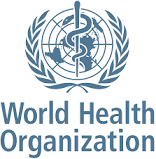|
In a recent stakeholders' engagement titled "Rethinking Malaria Elimination," the World Health Organization (WHO) and other key players called on the Federal Government to reduce reliance on external funding and bolster data availability to combat malaria effectively. The gathering, held in Abuja, aimed to redefine strategies in the battle against the life-threatening disease, which remains pervasive across Nigeria. According to WHO estimates, Nigeria reported nearly 67 million malaria cases in 2022, constituting 27 percent of the global burden.
In the same year, Nigeria accounted for 31 percent of global malaria deaths and a staggering 38 percent of deaths in children under five. Stakeholders emphasized the need for the government to ramp up efforts by allocating increased funds annually to the malaria elimination program. Dr. Matshidiso Moeti, the WHO Regional Director for Africa, expressed support for Nigeria's ambitious plan to accelerate progress towards malaria elimination. Additionally, Dr. Abdu Mukhtar, the National Coordinator of the Unlocking Healthcare Value-Chain Initiative, advocated for local production of medical supplies to reduce the country's dependence on imports. Dr. Mukhtar highlighted the importance of tailoring anti-malaria medication production to Nigeria's unique terrain, population, and disease burden to enhance access to effective treatment. Meanwhile, Prof. Mohammad Pate, the Coordinating Minister of Health and Social Welfare, acknowledged the ongoing efforts but stressed the need for further action to combat malaria effectively . Source: Punch
0 Comments
Leave a Reply. |
